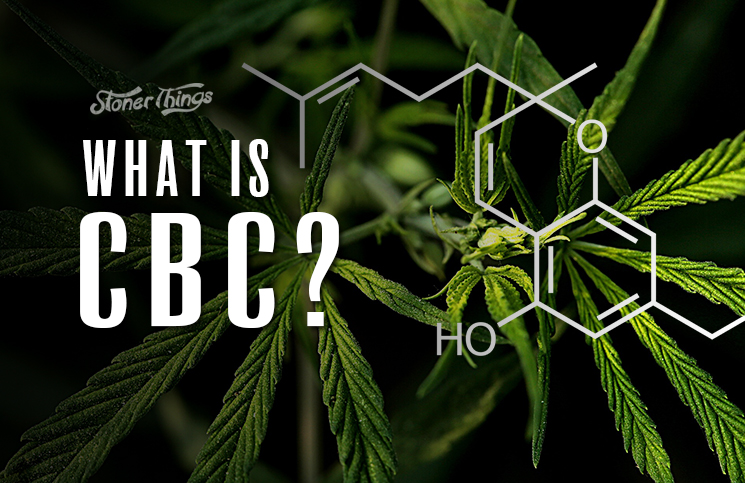The world of cannabinoids is a complex and fascinating realm within the realm of cannabis. Among the lesser-known cannabinoids is Cannabichromene, often abbreviated as CBC. While much attention has been focused on cannabinoids like THC (tetrahydrocannabinol) and CBD (cannabidiol), CBC has been quietly gaining recognition for its potential medical benefits. In this comprehensive exploration, we will delve into the nature of CBC cannabinoid, its benefits, and its distinctions from other well-known cannabinoids like CBD. Let’s embark on this journey to uncover the potential of CBC in the realm of cannabis.
Understanding CBC Cannabinoid: What is it?
Cannabichromene, or CBC, is one of the numerous cannabinoids found in cannabis plants. It is a non-psychoactive compound, meaning it doesn’t induce the characteristic “high” associated with THC. Instead, CBC interacts with the endocannabinoid system in a unique way, offering a range of potential health benefits. While not as extensively studied as THC or CBD, recent research has shed light on the promising properties of this cannabinoid.
The Benefits of CBC Cannabinoid
1. Aiding Pain Management
CBC has demonstrated potential as an analgesic, or pain-relieving agent. Research suggests that it may interact with pain receptors in the body, contributing to its potential effectiveness in managing both acute and chronic pain. This could offer a novel approach to pain management without the psychoactive effects of THC.
2. Anti-Inflammatory Effects
Inflammation is at the core of various health issues, from autoimmune diseases to chronic conditions. Preliminary studies indicate that CBC may exhibit anti-inflammatory properties, making it a candidate for potential therapeutic interventions.
3. Neurological Support
The potential neuroprotective effects of CBC have intrigued researchers in the field of neuroscience. Some studies suggest that it could promote the growth of brain cells, a process known as neurogenesis. This aspect opens up avenues for investigating its role in conditions like neurodegenerative diseases and cognitive disorders.
4. Anti-Depressant and Anti-Anxiety Effects
Mental health is a crucial aspect of well-being, and here too, CBC shows promise. There is growing evidence that CBC might have antidepressant and anti-anxiety properties, possibly by influencing receptors in the endocannabinoid system that are linked to mood regulation.
5. Potential Anti-Cancer Properties
While the research is still in its infancy, some studies have explored the potential of CBC as an anti-cancer agent. These studies suggest that it might inhibit the growth of certain types of cancer cells, offering a glimmer of hope in the fight against cancer.
Distinguishing CBC from Other Cannabinoids
CBC vs. CBD: Unraveling the Differences
CBD (cannabidiol) and CBC (cannabichromene) are both cannabinoids, but they exhibit distinct properties. Unlike CBD, CBC does not directly interact with cannabinoid receptors CB1 and CB2, which are prevalent in the endocannabinoid system. Instead, it interacts with other receptors in the body, such as TRPV1 and TRPA1. This unique interaction might contribute to its specific benefits.
Understanding the CBC vs. THC Dynamic
THC (tetrahydrocannabinol) and CBC are both compounds found in cannabis, but they have vastly different effects. THC is renowned for its psychoactive properties, inducing the “high” commonly associated with cannabis use. In contrast, CBC is non-psychoactive, making it an attractive option for individuals seeking the potential benefits of cannabis without the mind-altering effects.
Q&A: Unpacking the Potential of CBC Cannabinoid
What is the CBC cannabinoid good for?
The CBC cannabinoid holds potential in various areas, including pain management, anti-inflammatory effects, neurological support, anti-depressant and anti-anxiety properties, and even possible anti-cancer properties. Its multifaceted nature makes it an intriguing subject of ongoing research.
What is a CBC cannabinoid?
A CBC cannabinoid, or cannabichromene, is a naturally occurring compound found in cannabis plants. It is one of the lesser-known cannabinoids and has gained attention due to its potential medical benefits.
How is CBC different than CBD?
While both CBC and CBD are cannabinoids, they interact with the body differently. Unlike CBD, which interacts with CB1 and CB2 receptors in the endocannabinoid system, CBC interacts with other receptors like TRPV1 and TRPA1. This distinct interaction might contribute to the specific effects associated with CBC.
Summary
In the ever-evolving landscape of cannabinoid research, Cannabichromene (CBC) stands out as a cannabinoid with diverse potential medical benefits. From its role in pain management and anti-inflammation to its possible neuroprotective and mental health support properties, CBC offers a window into the complex interactions between cannabinoids and the human body. As research progresses and our understanding deepens, CBC could pave the way for innovative treatments and interventions across a spectrum of health conditions. While much remains to be discovered, the journey into the realm of CBC cannabinoid holds great promise for both researchers and individuals seeking alternative approaches to well-being.













